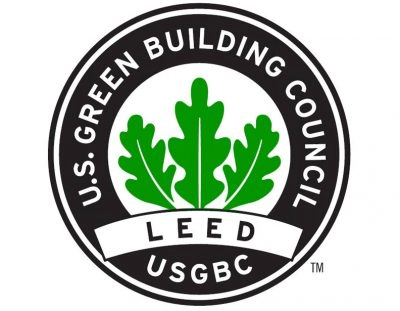I. Technical principle and structural design
1. Butt welding
Connection method: Align the end faces of the two pipes directly and fuse them by filling solder to form a continuous weld.
Structural features:
- The weld is consistent with the pipe wall thickness, there is no protruding structure, and the flow resistance is small.
- The groove (V-type, U-type or J-type) needs to be processed to ensure the penetration rate.
- Standard specification: ASME B16.25 specifies the dimensional tolerance and surface treatment requirements of the butt welding groove.
2. Socket welding
Connection method: Insert the pipe into the pipe fitting with a socket (such as a valve or a tee), and weld the fillet weld along the outer edge of the pipe fitting.
Structural features:
- There is a 1.6mm expansion gap between the pipe and the pipe fitting (ASME B31.3 requirement).
- The weld is located between the outer wall of the pipe and the socket of the pipe fitting to form a mechanical lock.
Standard specification: ASME B16.11 defines the pressure grade and size series of socket welding pipe fittings.
II. Comparison of process requirements and operation procedures
1. Butt welding construction process
Groove processing:
- Use a groove machine to cut a V-shaped groove (angle 60°±5°, blunt edge 1.6mm).
- Clean the oil and rust within 20mm of the inner and outer walls of the groove.
Assembly and spot welding:
- Use a clamp to ensure that the concentricity deviation of the pipe is ≤1mm, and fix it at 3~4 spot welds.
Multi-layer welding:
- The base welding adopts TIG process (argon purity ≥99.99%), and the filling welding and cover welding can be selected by SMAW or GMAW.
- The interlayer temperature is controlled at 150~250℃ (carbon steel) or ≤150℃ (stainless steel).
Post-weld treatment:
- Perform 100% radiographic testing (RT) or ultrasonic testing (UT) to eliminate unfused or pore defects.
2. Socket welding construction process
Pipeline pretreatment:
- Cut the pipe to a length tolerance of ±0.8mm to ensure that the insertion depth meets the requirements.
Assembly and positioning:
- Insert the pipe into the socket of the pipe fitting, leaving a 1.6mm axial gap (to prevent thermal stress cracking).
Fillet weld welding:
- Use SMAW or GTAW process to weld 1~2 welds around the pipe mouth.
- The height of the weld leg must be ≥1.09 times the pipe wall thickness (ASME B31.3 regulations).
Inspection and acceptance:
- Visual inspection (VT) to check the continuity of the weld, and perform penetration testing (PT) if necessary.
III. Comparison of core performance and economic efficiency
| Indicator | Butt Weld | Socket Weld |
| 強さ
|
High (weld strength equals base material) | Medium (depends on fillet weld shear resistance)
|
| Sealing
|
Excellent (full penetration structure)
|
Good (depends on weld density)
|
| Applicable Pipe Diameter
|
DN15~DN2000
|
DN15~DN80 (advantage for small diameters)
|
| Installation Cost
|
High (requires groove machining, skilled welders)
|
Low (no groove required, easy operation)
|
| Maintenance Difficulty
|
High (requires cutting weld for repair)
|
Low (local repair welding possible)
|
| Applicable Pressure
|
High pressure (Class 1500~2500)
|
Medium and low pressure (Class 300~600)
|
IV. Analysis of industry application scenarios
1. Typical applications of butt welding
Long-distance oil and gas pipelines:
Requirements: withstand high pressure (≥10MPa), resist hydrogen sulfide stress corrosion.
Solution: X65 steel grade pipeline + U-shaped groove, multi-pass welding with post-weld heat treatment (PWHT).
Nuclear power main steam pipeline:
Requirement: zero leakage, thermal fatigue resistance.
Solution: Austenitic stainless steel + automatic orbital welding, 100% radiographic flaw detection.
2. Typical applications of socket welding
Chemical instrument pressure pipe:
Requirement: small pipe diameter (DN15~25), easy to disassemble and calibrate.
Solution: 316L stainless steel socket welding valve + gas shielded welding of fillet weld.
Ship ballast water system:
Requirement: fast installation, vibration resistance.
Solution: galvanized steel pipe with socket welding flange, epoxy anti-corrosion coating after welding.
V. Key factors for selection decision
System pressure and temperature:
- High pressure and high temperature (P≥5MPa, T≥200℃) give priority to butt welding.
- Medium and low pressure and normal temperature systems can consider socket welding to reduce costs.
Pipe diameter and space restrictions:
- When the pipe diameter is below DN80 and the installation space is narrow, socket welding is easier to operate.
- For large pipe diameters (≥DN150), butt welding must be used to ensure structural strength.
Maintenance and inspection requirements:
- For pipelines that need to be frequently disassembled and repaired (such as sampling systems), socket welding is more economical.
- For pipelines involving highly toxic or radioactive media, the full penetration structure of butt welding is safer.
VI. Common problems and solutions
1. Typical defects of butt welding
Incomplete penetration: adjust the groove angle or increase the welding current to ensure root fusion.
Heat-affected zone cracks: control the interlayer temperature, slow cooling after welding or perform stress relief heat treatment.
2. Typical defects of socket welding
Insufficient gap: check with a feeler gauge before installation to ensure a 1.6mm expansion gap.
The weld is not filled: increase the number of welds or use a larger diameter electrode.
VII. Industry standards and compliance requirements
ASME B31.3: specifies the process assessment and inspection standards for butt welding and socket welding.
API 570: requires wall thickness inspection of butt-welded pipes every 5 years, and socket welding needs to focus on checking the corrosion of fillet welds.
ISO 15614-1: Certification requirements for welding procedure specifications (WPS).
VIII. Future development trends
Automated welding: Robotic butt welding system improves the construction efficiency of large-diameter pipes with an accuracy of ±0.2mm.
Argon-free technology: Flux-Cored Wire reduces the reliance on gas protection during butt welding.
Intelligent detection: AI-driven real-time weld quality monitoring system (such as Olympus OmniScan X3).




